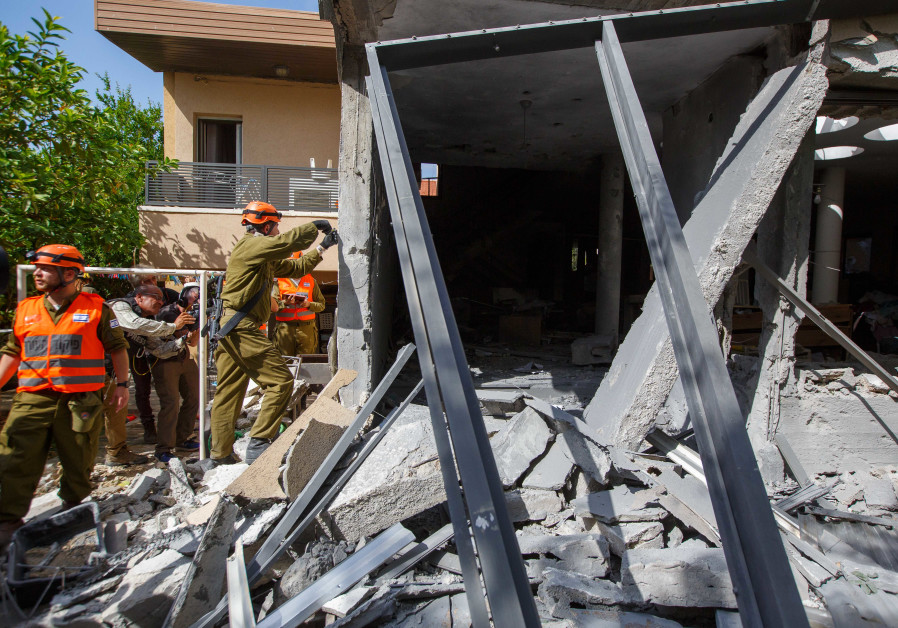Does obsession with disproportionality compromise responsible warfare?
if(window.location.pathname.indexOf(“656089”) != -1){document.getElementsByClassName(“divConnatix”)[0].style.display =”none”;}else if(window.location.pathname.indexOf(“634517”) != -1){ document.getElementsByClassName(“divConnatix”)[0].style.display =”none”; var script = document.createElement(‘script’); script.src = ‘https://player.anyclip.com/anyclip-widget/lre-widget/prod/v1/src/lre.js’; script.setAttribute(‘pubname’,’jpostcom’); script.setAttribute(‘widgetname’,’0011r00001lcD1i_12258′); document.getElementsByClassName(‘divAnyClip’)[0].appendChild(script);}
Disproportionality
 NAFTALI BENNETT replies to statements by celebrities (from left) Bella Hadid, Trevor Noah and John Oliver, in a YouTube video released during Operation Guardian of the Walls. (Credit: YOUTUBE SCREENSHOT)
NAFTALI BENNETT replies to statements by celebrities (from left) Bella Hadid, Trevor Noah and John Oliver, in a YouTube video released during Operation Guardian of the Walls. (Credit: YOUTUBE SCREENSHOT)Power imbalance
 RESCUE PERSONNEL and Israeli Home Front Command at the scene of a direct rocket hit, at an Israeli home in Ashkelon, May 20. (Credit: EDI ISRAEL/FLASH90)
RESCUE PERSONNEL and Israeli Home Front Command at the scene of a direct rocket hit, at an Israeli home in Ashkelon, May 20. (Credit: EDI ISRAEL/FLASH90)Power as morality
 IN THE Melian Dialogue during the Peloponnesian War, the Athenians argued ‘might is right.’ (Pictured: Athenian politician Pericles, delivering his famous funeral oration in front of the Assembly. Painting, Philipp Foltz. (Credit: Wikimedia Commons)
IN THE Melian Dialogue during the Peloponnesian War, the Athenians argued ‘might is right.’ (Pictured: Athenian politician Pericles, delivering his famous funeral oration in front of the Assembly. Painting, Philipp Foltz. (Credit: Wikimedia Commons) ![POWER IS situational: Scene of the Battle of the Thermopylae (Credit: Wikimedia Commons) POWER IS situational: Scene of the Battle of the Thermopylae (Credit: Wikimedia Commons)]() POWER IS situational: Scene of the Battle of the Thermopylae (Credit: Wikimedia Commons)Standards on the use of force
POWER IS situational: Scene of the Battle of the Thermopylae (Credit: Wikimedia Commons)Standards on the use of force
Consequence of a broken standard
 EMILY SCHRADER, CEO, Social Lite Creative. (Credit: COURTESY EMILY SCHRADER)
EMILY SCHRADER, CEO, Social Lite Creative. (Credit: COURTESY EMILY SCHRADER)





Comments are closed.